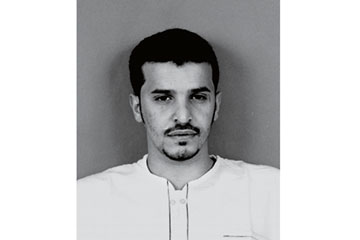
Saudi national Ibrahim al-Asiri has evolved into al-Qaeda's most inventive bombmaker.
(2 of 6)
Government officials say al-Asiri's bomb plots are behind many of the security measures that have inconvenienced travelers in--and to--the U.S. and raised protests from civil libertarians. The TSA's use of body scanners that show a person effectively naked was intended to thwart al-Asiri's underwear bombs. His printer-cartridge bombs increased pressure on the cash-strapped U.S. air-forwarding industry to screen all cargo on inbound international passenger planes after it had already spent hundreds of millions to screen all domestic passenger planes' cargo. The Obama Administration has alarmed some on the right and the left by killing three American citizens and dozens of Yemeni civilians in drone strikes while hunting al-Asiri and other AQAP leaders. And in an effort to find the source who leaked details of the May 2012 plot to the Associated Press, the Department of Justice pushed the limits of its investigative powers to secretly obtain call records for thousands of calls made by the AP.
Now that al-Qaeda's original leaders are dead, captured or in hiding, the movement has dissolved into dozens of local cells scattered across the world. U.S. counterterrorism officials are debating whether to go after smaller al-Qaeda affiliates and which post-9/11 powers to use when they do. Targeting local groups could stop an ambitious cell before it gets big enough to be a threat to the U.S., but it could also mobilize terrorists who might otherwise focus on local enemies, not Americans. There is no such debate in the Administration over whether to go after al-Asiri. "He's the main guy," says a senior U.S. counterterrorism official. "He's the top of any list."
Evolution of a Threat
Al-Asiri started life as an ordinary member of Saudi Arabia's middle class. His father Hassan served in the Saudi military for more than 40 years and settled with his family in the comfortable eastern Riyadh neighborhood of al-Jazirah. Ibrahim was born in April 1982 and grew up with four brothers and three sisters. "They were not religious boys," his mother told al-Watan, one of Saudi Arabia's largest newspapers. "They used to listen to music and had a wide variety of friends." After one of the brothers was killed in a car accident, family members say, Ibrahim and his younger brother Abdullah became more religious. "They started swapping videotapes and cassettes on the mujahedin in Chechnya and Afghanistan, and they became at times distant," one of the sisters told al-Watan. The boys began going to "preaching camps" and became preoccupied with the idea of jihad, the family said. Eventually Ibrahim attended the King Saud University and began studying chemistry.
